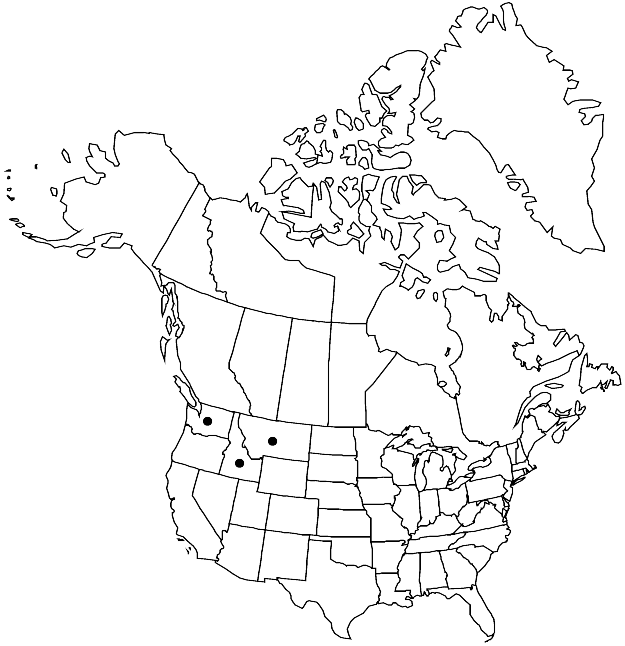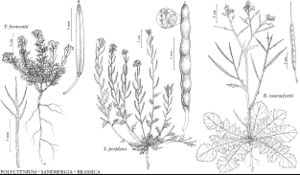Sandbergia perplexa
Harvard Pap. Bot. 12: 426. 2007.
Biennials or perennials; densely to sparsely pubescent, trichomes subsessile, minute, Y-shaped or cruciform, mixed with simple or forked ones. Stems usually several from caudex, rarely simple, erect to decumbent, unbranched or branched distally, (1–)1.3–4(–5) dm, densely pubescent throughout or glabrescent distally. Basal leaves rosulate; petiole 0.5–2.5 cm; blade narrowly to broadly oblanceolate, 2–5 cm × 5–15 mm, margins lyrate-pinnatifid to coarsely dentate, apex obtuse to acute, surfaces densely pubescent. Cauline leaves 4–12; blade oblong to oblanceolate, 0.6–2 cm × 2–6 mm (base attenuate, not auriculate), margins coarsely dentate to pinnatifid, or (distal) subentire or dentate, apex obtuse to subacute, surfaces densely to sparsely pubescent. Fruiting pedicels 4–15 mm, densely pubescent to glabrescent. Flowers: sepals 1.5–2 × 0.8–1.2 mm; petals (3–)4–7 × 1.2–2 mm; filaments 2–3 mm; anthers ovate, 0.5–0.6 mm. Fruits ascending to suberect, straight to slightly tortuous, strongly torulose, strongly latiseptate, (1–)1.5–2(–2.5) cm × 0.8–1 mm; valves each with obscure midvein, densely pubescent to glabrescent; ovules 12–20 per ovary; style 0.2–1.3 mm. Seeds 1–1.3 × 0.5–0.6 mm. 2n = 14.
Phenology: Flowering Apr–Jul.
Habitat: Sagebrush flats, pine woods, basaltic gravel and outcrop, sandy banks, rocky hillsides, granitic talus
Elevation: 300-1500 m
Distribution

Idaho, Mont., Wash.
Discussion
I have seen limited material of var. lemhiensis, and all the differences given by R. C. Rollins (1993) to separate it from var. perplexa (e.g., style and pedicel length, density of indumentum) are quantitative characters that show continuous, uncorrelated variation. Sandbergia perplexa is known from counties in Idaho (Adams, Butte, Custer, Idaho, Lemhi, Valley), Montana (Beaverhead), and Washington (Douglas).
Selected References
None.
